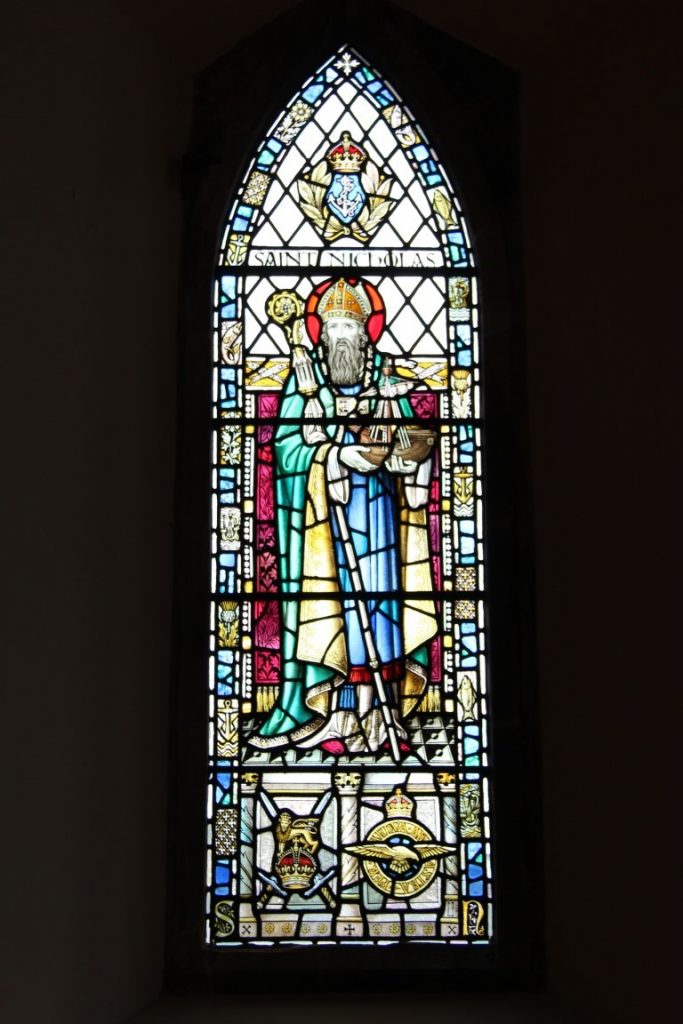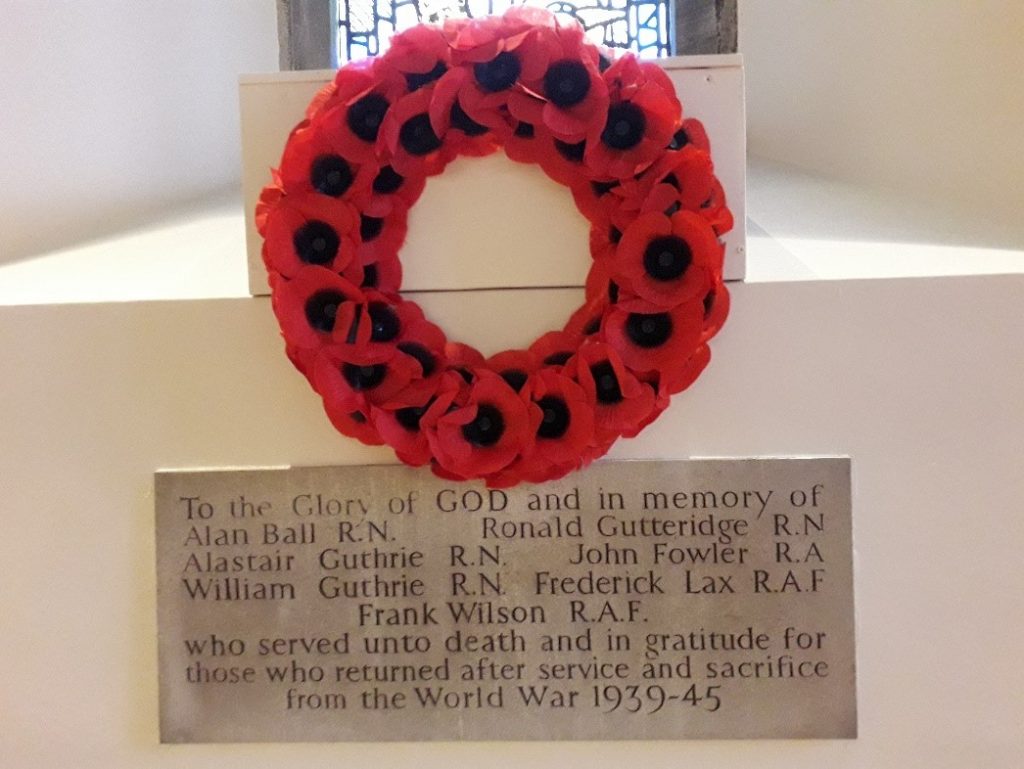Today is Remembrance Sunday, a day when we as Christians as called to do two things, to remember and to pray. We start with prayer as we read or sing the words of Fred Kaan’s hymn ‘For the healing of the nations’ – a hymn which reminds us that we are called to care for a world where we are inter-dependant and to use our political will, our global influence and our natural resources for the good of all humanity in seeking justice and peace for all. Here is David Sawyer playing the tune.
For the healing of the nations,
Lord, we pray with one accord,
for a just and equal sharing
of the things that earth affords.
To a life of love in action
help us rise and pledge our word.
Lead us forward into freedom,
from despair your world release,
that, redeemed from war and hatred,
all may come and go in peace.
Show us how through care and goodness
fear will die and hope increase.
All that kills abundant living,
let it from the earth be banned:
pride of status, race or schooling,
dogmas that obscure your plan.
In our common quest for justice
may we hallow brief life’s span.
You, Creator God, have written
your great name on humankind;
for our growing in your likeness
bring the life of Christ to mind;
that by our response and service
earth its destiny may find.
This year for the first time, poppies have been made available in our church porch – red poppies which represent a commitment to remember those who have served and died in past wars and white poppies which represent a commitment to work and pray for peace. Some would that they are incompatible but for us as Christians who are seeking to grow into the likeness of our Creator God, they are surely two sides of the same coin.
Our Scripture teaches us that down the ages, remembering has shaped the future of the people of God. We remember the promise and responsibility God gave to his chosen people which they often forgot but which is the foundation of our relationship with God through Christ. We remember the promises Jesus made, like the ones in our Gospel passage, John 6.37-40, read today by James Humphreys, that if anyone comes to him, he will hold on to them and never let them go, that anyone who trusts who he is and aligns with him will enter real life, eternal life. We remember the wonderful mysteries of our faith, like the mystery of the resurrection Paul talks about in his first letter to the Corinthians 15.51-57, read by Cpt. John Roddis. And we remember the amazing transformative power of God’s spirit which is alive within us and between us. We remember all these things so that they will shape our lives and enable us to grow in our faith. Likewise, we remember the tragedy of countless lost lives and the traumas endured by those who survived past wars, so that we can be inspired to work to build relationships of peace and justice in our world today. As the Holocaust survivor and Nobel Laureate, Elie Wiesel, said, ‘Without memory, there would be no civilization, no society, no future.’
Our forebears her at St Mary’s knew the importance of remembering for the future. This is why we have in the church the window which was unveiled seventy years ago, in May 1950, in memory of those members of our church who lost their lives in the Second World War. Once more this year we will honour the memory of the seven young men listed on the plaque beneath the window and we will also listen to the stories of their short lives. As we do so, we will be aware of the gaps their deaths left in the lives of their families and in the community here in Dunblane. We will be reminded of the terrible cost of war and how our best response to their loss is the active bringing about of justice and peace.
 Ronald Gutteridge, the son of Company Sergeant Major Gutteridge of Queen Victoria School. Educated at St Mary’s School, he was a fine athlete and swimmer. He joined the navy at the age of 15. He was killed two years later, in October 1939, whilst serving as a boy sailor on HMS Royal Oak. The battleship was anchored at Scapa Flow in Orkney when she was torpedoed by a German submarine. Over eight hundred men and boys were killed that night. Ronnie was the Dunblane’s first war casualty.
Ronald Gutteridge, the son of Company Sergeant Major Gutteridge of Queen Victoria School. Educated at St Mary’s School, he was a fine athlete and swimmer. He joined the navy at the age of 15. He was killed two years later, in October 1939, whilst serving as a boy sailor on HMS Royal Oak. The battleship was anchored at Scapa Flow in Orkney when she was torpedoed by a German submarine. Over eight hundred men and boys were killed that night. Ronnie was the Dunblane’s first war casualty.
William Guthrie, the middle son of Alexander and Christina Guthrie of Thorncliffe, The Crescent, Dunblane. Educated at St Mary’s School he was a member of the choir and a Scout. He was apprenticed to as a draper in Stirling leaving in 1938 for the Royal Navy. He was killed at the age of 20 while serving on convoy duty on board HMS Wakeful, evacuating Allied troops from Dunkirk in May 1940. The destroyer was struck by two torpedoes causing the loss of most of the crew and troops on board.
Alastair Guthrie, William’s younger brother and also a member of St Mary’s Church choir and a scout. He joined the navy straight from school at the age of sixteen to train as a signaller at the Boys Training Centre, HMS Ganges near Ipswich. He went to sea in May 1938 and having taken a number of proficiency exams he was promoted to Yeoman of Signals in 1941. His last post was as a leading signalman on HMS Culver, an ex-US Coastguard cutter, escorting convoys to and from Liverpool. His ship was torpedoed by a German U boat, broke in two and sank in less than a minute. Alastair was killed two years after his brother, in January 1942 at the age of 21.
Frank Wilson who lived with his parents and two brothers about the family’s newsagents shop in Station Square, Dunblane. He was a member of St Mary’s Choir and a Rover Scout. Both he and his brother, Sandy joined the RAF. He was killed in July 1941 on an operational flight to Hamm on the Rhine.
Fredrick Lax, the only son of Bandmaster and Mrs Lax of Queen Victoria School. Born at Agra in India, Fred had been a pupil at St Mary’s School. He joined the RAF at the age of 15 in 1937 and qualified as an engineer air-gunner on Sunderland Flying-Boats before becoming a flight engineer on Stirling big Bombers. He went missing following a night operational flight over Germany in 1943. He was 21, married with a child, when he died.
John Fowler, the son of Mr and Mrs C. Fowler, the Cross, Dunblane. A pupil of Queen Victoria School, he had served for seven years as a Sergeant with the Royal Artillery before being imprisoned by the Japanese. He died in a prisoner of war camp in June 1944 at the age of 24 and is buried at Kranji War Cemetery, Singapore
Allan Heywood Ball, the younger son of Henry and Annie Ball of Bishop Barn, Dunblane. He was a Lieutenant Commander with the Royal Naval Volunteer Reserve serving on the anti-submarine trawler HMS Visenda operating in the North Atlantic. He died aged 37 at a naval hospital near Bristol in February 1945 and is buried in Arnos Vale Cemetery, Bristol.

We also remember Robert Thomas who was lost in the First World War. He was baptised in St Mary’s on 11th December 1898. His father Robert was the publican of the Railway Hotel. Serving in 1st/6th Battalion of The Black Watch, Robert was killed when the dugout he was in on the Western Front was hit by a shell on 17th October 1918. He is buried in France.
We will remember them
Let us pray
for all who suffer as a result of conflict, and ask that God may give us peace: for the service men and women who have died in the violence of war, each one remembered by and known to God;
May God give peace
for those who love them in death as in life, offering the distress of our grief and the sadness of our loss;
May God give peace
for all members of the armed forces who are in danger this day, remembering family, friends and all who pray for their safe return;
May God give peace
for civilian women, children and men whose lives are disfigured by war or terror, calling to mind in penitence the anger and hatreds of humanity;
May God give peace
for organisations which give support to victims of war, their volunteers and fundraisers;
May God give peace
for peace-makers and peace-keepers, who seek to keep this world secure and free;
May God give peace
for all who bear the burden and privilege of leadership, political, military and religious; asking for gifts of wisdom and resolve in the search for reconciliation and peace.
May God give peace
O God of truth and justice, we hold before you those whose memory we cherish, and those whose names we will never know. Help us to lift our eyes above the torment of this broken world, and grant us the grace to pray for those who wish us harm. As we honour the past, may we put our faith in your future; for you are the source of life and hope, now and for ever. Amen.
You may wish to finish your time of worship and reflection with Katherine von Schlegel’s hymn of trust in God, ‘Be still, my soul’. Here is David playing the tune ‘Finlandia’.
Be still, my soul: the Lord is on thy side;
bear patiently the cross of grief or pain;
leave to thy God to order and provide;
in every change he faithful will remain.
Be still, my soul: thy best, thy heavenly friend,
through thorny way leads to a joyful end.
Be still, my soul; thy God doth undertake
To guide the future as He has the past.
Thy hope, thy confidence let nothing shake,
all now mysterious shall be bright at last.
Be still, my soul: the waves and winds still know
His voice who ruled them while he dwelt below.
Be still, my soul; the hour is hastening on
when we shall be forever with the Lord,
when disappointment, grief, and fear are gone,
sorrow forgot, love’s purest joys restored.
Be still, my soul: when change and tears are past,
All safe and blessed we shall meet at last.






